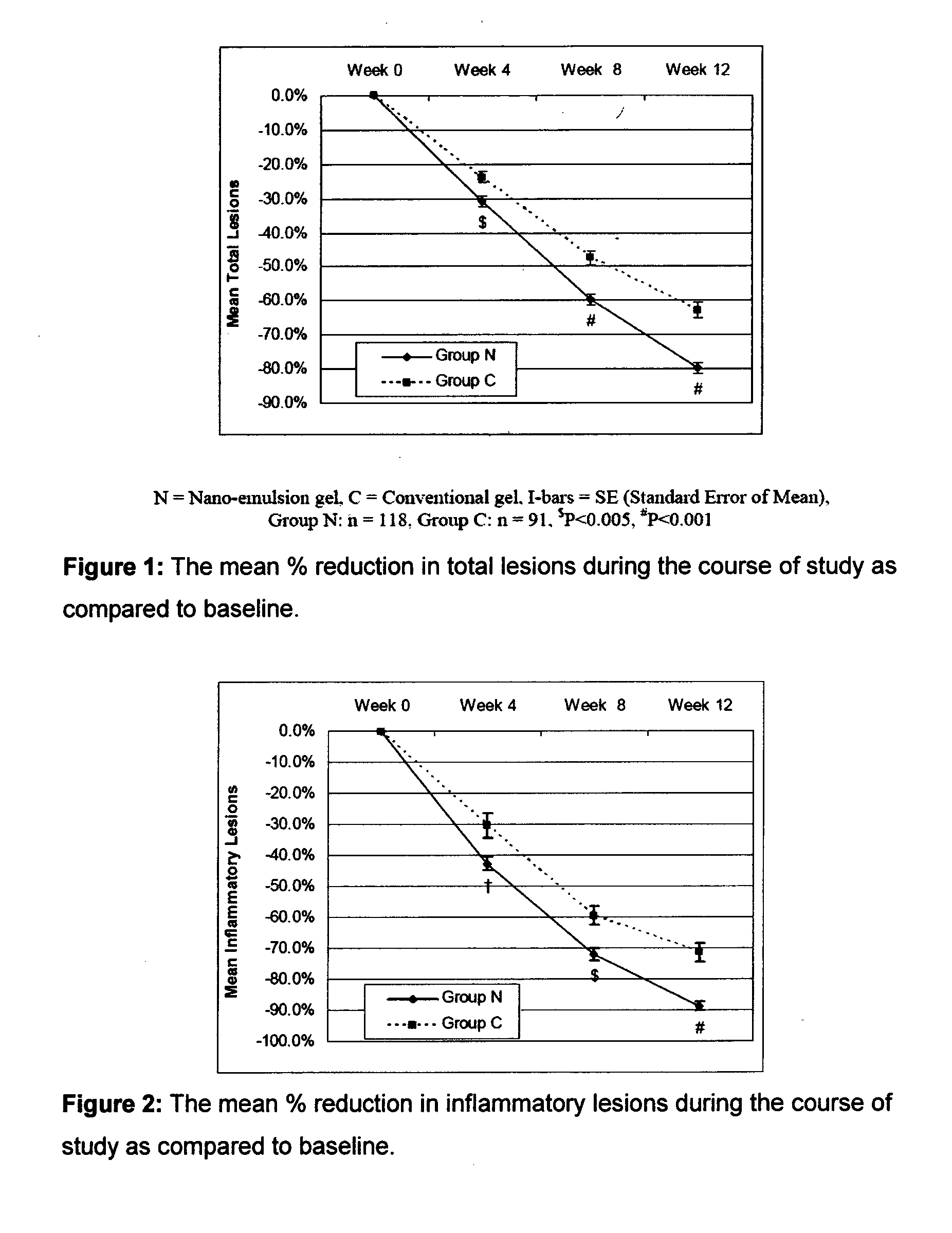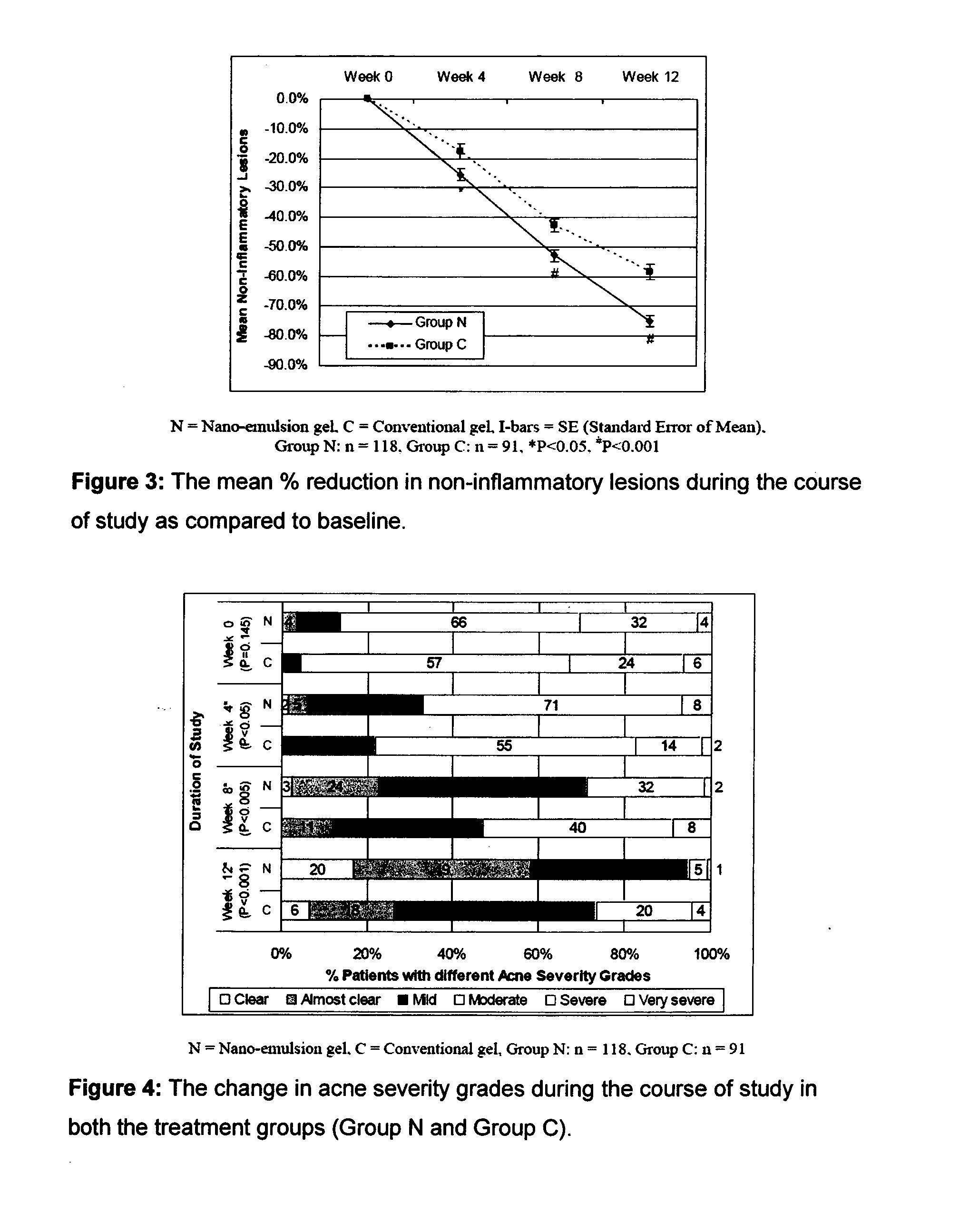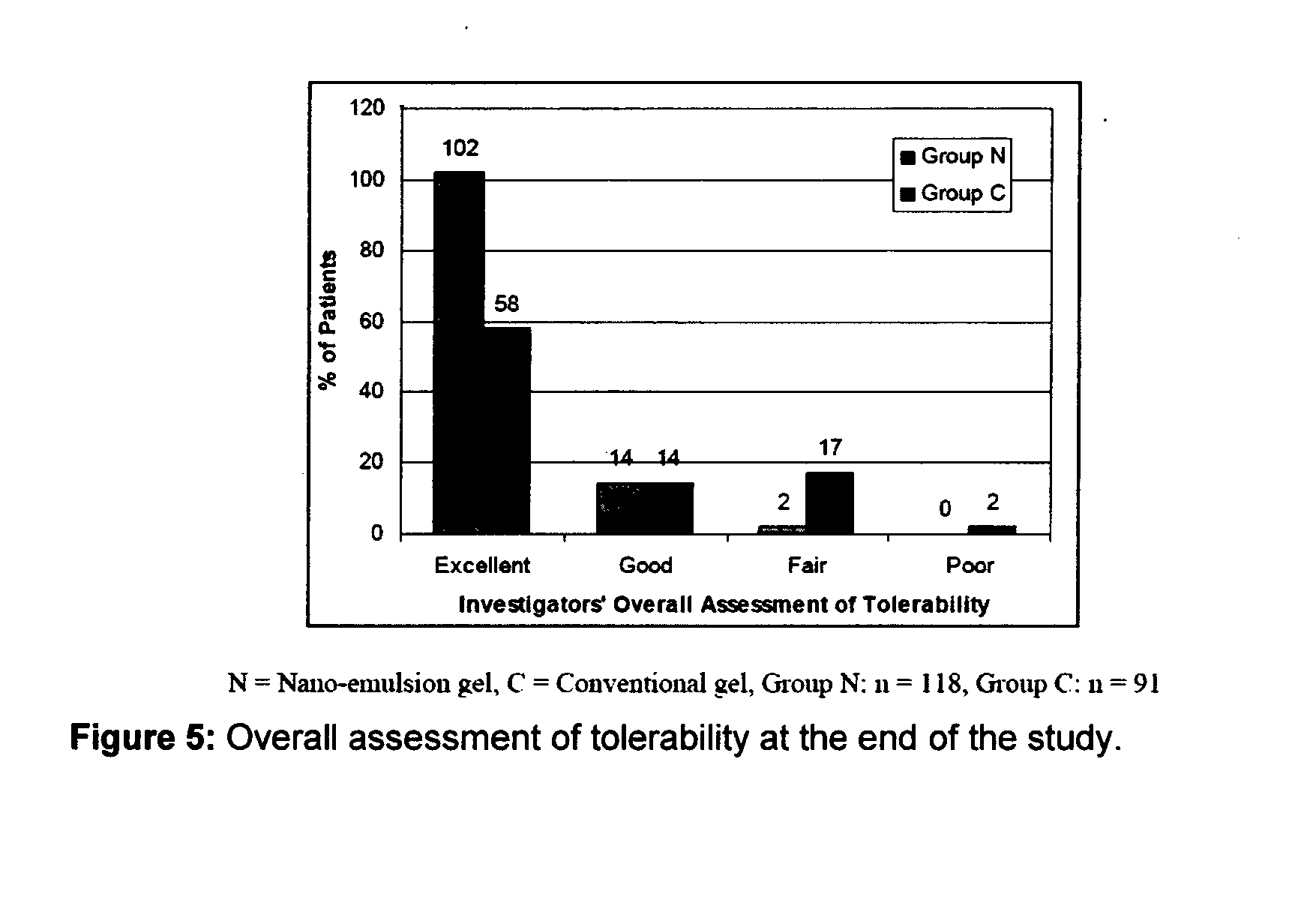Method for treatment of acne using pharmaceutical compositions of clindamycin and adapalene
a technology of adapalene and clindamycin, which is applied in the field of acne treatment, reducing or preventing acne, can solve the problems of increasing the likelihood of pores being blocked by shedding skin, permanent scarring or disfiguring, and birth defects, so as to reduce the total number of acne lesions on the skin, reduce the total number of inflammatory acne lesions, and reduce the total number of non-inflammatory acne lesions
- Summary
- Abstract
- Description
- Claims
- Application Information
AI Technical Summary
Benefits of technology
Problems solved by technology
Method used
Image
Examples
example 1
Clindamycin Phosphate and Adapalene Nanogel
[0085]
TABLE 1Sr. No.Ingredients% w / w1Clindamycin Phosphate1.22Adapalene0.13Polysorbate 803.04Glycerol5.05Soyabean oil9.06Carbopol 974P1.07Sodium HydroxideQ. S.8WaterQ. S.
Procedure: Clindamycin phosphate was dissolved in water, alcohol, polysorbate 80, glycerol and soyabean oil. The resulting blend was homogenized to reduce the droplet size to D90 particle size of about 250 nm by high pressure homogenization to get the nano emulsion. Adapalene was dispersed in alcohol and aqueous dispersion of carbopol 974P followed by suitable pH adjustment using Sodium hydroxide solution. The aqueous dispersion of carbopol 974P was mixed with nano emulsion to get nanogel.
example 2
[0086]The efficacy and safety of the composition of the present invention (containing 0.1% adapalene and 1% clindamycin) was evaluated vis-à-vis other marketed gel formulation (Deriva-CMS® Gel [marketed by Glenmark Pharmaceuticals Ltd.), containing 0.1% adapalene micro-spheres and 1% clindamycin].
[0087]A total of 212 patients suffering from acne vulgaris of the face were enrolled in the clinical study; out of these 119 patients were randomized to the nano-emulsion gel (Composition of the invention or Nano-emulsion gel, Group N) arm; while 93 patients were randomized to the marketed gel product (Conventional gel, Group C) arm.
[0088]Patients were instructed to apply either of the medication to the acne affected areas once a day after washing and before retiring at night. A thin film of gel was to be applied, with the fingertips, avoiding the eyes and lips, ensuring that the affected areas were dry before application. The total treatment duration was 12 weeks in each of t...
PUM
| Property | Measurement | Unit |
|---|---|---|
| particle size | aaaaa | aaaaa |
| particle size | aaaaa | aaaaa |
| particle size | aaaaa | aaaaa |
Abstract
Description
Claims
Application Information
 Login to View More
Login to View More - R&D
- Intellectual Property
- Life Sciences
- Materials
- Tech Scout
- Unparalleled Data Quality
- Higher Quality Content
- 60% Fewer Hallucinations
Browse by: Latest US Patents, China's latest patents, Technical Efficacy Thesaurus, Application Domain, Technology Topic, Popular Technical Reports.
© 2025 PatSnap. All rights reserved.Legal|Privacy policy|Modern Slavery Act Transparency Statement|Sitemap|About US| Contact US: help@patsnap.com



